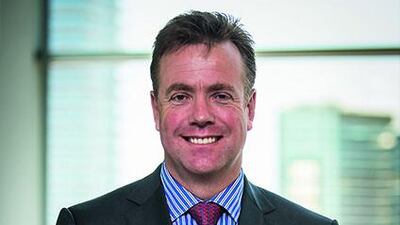Jaguar Land Rover, when the financial crisis swept through the planet in 2009, looked as though it could topple over at any second. Vast amounts of stock remained unsold in the United States, nobody was going into European dealerships and the resultant, immediate downsizing required for the company to survive was sharp and painful.
Yet now, just five years on, it’s as though none of that happened. Riding the crest of a wave that seems to have no end in sight, the company is in the rudest imaginable health and cannot, no matter how hard it tries, keep up with worldwide demand for its products.
Part of this turnaround is attributable to success in emerging markets like China and South America, but there’s no denying that the vehicles rolling off its various production lines are the best that it’s ever made. Whether you’re talking about the new Jaguar F-Type or the Range Rover Evoque, these are cars that have woken up and shaken a newer, younger section of the marketplace. No longer do you need to be a retired dentist to drive a Jaguar, or a pompous landed gentry toff to drive a Range Rover.
It’s a hugely exciting time to be a key player in the success of Jaguar Land Rover right now, and Bruce Robertson knows this. He’s the new managing director for the company in the Mena region, filling the rather large shoes left for him by Robin Colgan, who has relocated back to the United Kingdom. Robertson has been with the company for 19 years, starting out in 1995 as a PR manager in his home country of South Africa, before traversing the globe as he moved onward and upward through the company, including a lengthy stint in the UK, where he was the sales director for Land Rover. So it’s safe to say that he’s experienced.
But the company that he’s spent so long working for isn’t completely out of the woods – there’s much work to be done in this region to improve sales for the Jaguar and Land Rover brands, not to mention the after-sales care and service standards. Jaguar sales, in particular, are nowhere near what they should be (it sells roughly two-thirds what Porsche is currently doing) and that needs to be addressed urgently if the brand is to succeed on its own merits, rather than being propped up by its more utilitarian cousin.
“It’s not our plan to become a mass manufacturer,” he says, “and it never will be. We appeal to a limited sector in the marketplace; we sold roughly 440,000 cars last year [the vast majority Land Rovers] – we’re not aiming to sell a million a year.”
The next big launch for Jaguar will be the XE in 2015; a 3-Series rival that promises to wipe the horrible X-Type from our memories – but, when you look at the rampant success of Porsche, surely an SUV is the way to go for increased sales, particularly in China and here in the UAE?
“The US, UK and parts of Europe are areas where there’s a huge amount of downsizing taking place,” says Robertson, “and we need to ensure survivability in these countries. Look at the CO2 emissions issue, the taxation – we need to keep Jaguar relevant to those markets first. There is a large opportunity here and in China in the XE segment, too.”
Robertson admits that there’s work to do in making the brands more acceptable and appealing to those with requirements for luxury cars, but says that growth will be manageable and progressive, rather than overnight. And, yes, he agrees that a Jaguar SUV (we all know it’s coming) will massively help sales. Last year, we got to experience the concept C-X17 and immediately saw the enormous potential of it to send Jaguar’s sales skywards. It can’t come soon enough, but, talking to Robertson, it’s obvious that there’s a plan.
New production lines are required (current demand for Land Rovers has resulted in lengthy lead times, and this will not do, he says) and customer service is still an issue that needs sorting – but they’re getting there. The cars are uniformly excellent these days – vibrant, exciting, capable and, at long last, extremely well made – and Jaguar’s inevitable rise will be something that’s both well deserved and, five short years ago, entirely unthinkable.

